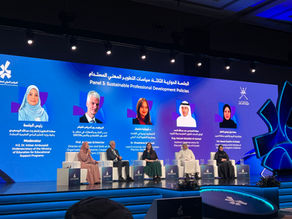Last Call to Harness the Power of #TeenVoices to Build Back Better!
- SDSN Youth

- Nov 1, 2021
- 3 min read
Written by Kenneth Kwok, Founder and CEO of KIDsforSDGs and Mentor Advocate
Teenagers, which make up the largest demographic in many countries today, are conscious of their responsibilities to humanity and the planet. They are the first to have experienced at least two major global shocks, the financial crisis, and the COVID-19 outbreak, making them disproportionately affected by the pandemic. Without advancing a rebalancing at the systemic level, this generation will not fully develop the professional and personal skills required to meaningfully align with the future of education, employment, and entrepreneurship - and create sustainable impact for our world.

Tired of accusations of teenagers themselves being the problem, they are determined to be the solution. They're demanding that world leaders and businesses increase equity, protect our planet, and ensure no one is left behind. Furthermore, they are taking the lead in providing the ideas, innovations, and initiatives – referencing the systems work of social change by Dr. Francois Bonnici and Ms. Cynthia Rayner – to do so.
Even before the COVID-19 pandemic devastated lives and livelihoods around the world, the socio-economic systems of the past had put the liveability of the planet at risk and eroded the pathways to healthy, happy, and fulfilled lives for too many. The same prosperity that enabled global progress and democracy after the Second World War is now creating the inequality, social discord, and climate change we see today — along with a widening generational wealth gap and youth debt burden, too. For Millennials, the 2008 financial crisis and the Great Recession resulted in significant unemployment, massive student debt, and a lack of meaningful jobs. Now, for the Generation Z community which KIDsforSDGs serves, COVID-19 has caused school shutdowns, worsening unemployment, and mass protests. The Global Schools Program plays such a pivotal role in our broad-based recovery by empowering educators to lead in a more sustainable manner.

Teenagers are right to be deeply concerned and angry, seeing these challenges as a betrayal of their future. The next generation is the most important and most affected stakeholders when discussing our global future – and we owe them more than this. The year 2021 is the time to start thinking and acting long-term to make intergenerational parity the norm and to design a society, economy, and international community that cares for all people. As such, we have co-curated the inaugural UNITAR Youth Ambassador Asia Pacific Program - a multi-stakeholder, inter-generational and cross-cultural to experience-based learning for teenagers in our region. Our Class of 2021 is actively engaging with ideation and prototyping of "STEMxSDG" led solutions, to resolve current grassroots issues within their communities and networks.
Governments must adopt an intergenerational lens to all recovery efforts. They should include teenagers as co-designers of national recovery plans.
Having diverse young people in politics and policymaking can ensure that the recovery is inclusive and that all voices are represented. It can also help the world become prepared for future shocks. The work KIDsforSDGs carries out to support teenagers in realizing this inclusivity, is in collaboration with the UpLink Innovation Network at the World Economic Forum as well as the COVID Response Alliance at the Schwab Foundation. To build a more inclusive, resilient world, it is imperative that teenagers, especially those truly advancing the UN SDGs, have a seat at the decision-making table.
Written by Kenneth Kwok, Founder and CEO of KIDsforSDGs and Mentor Advocate

















Comments